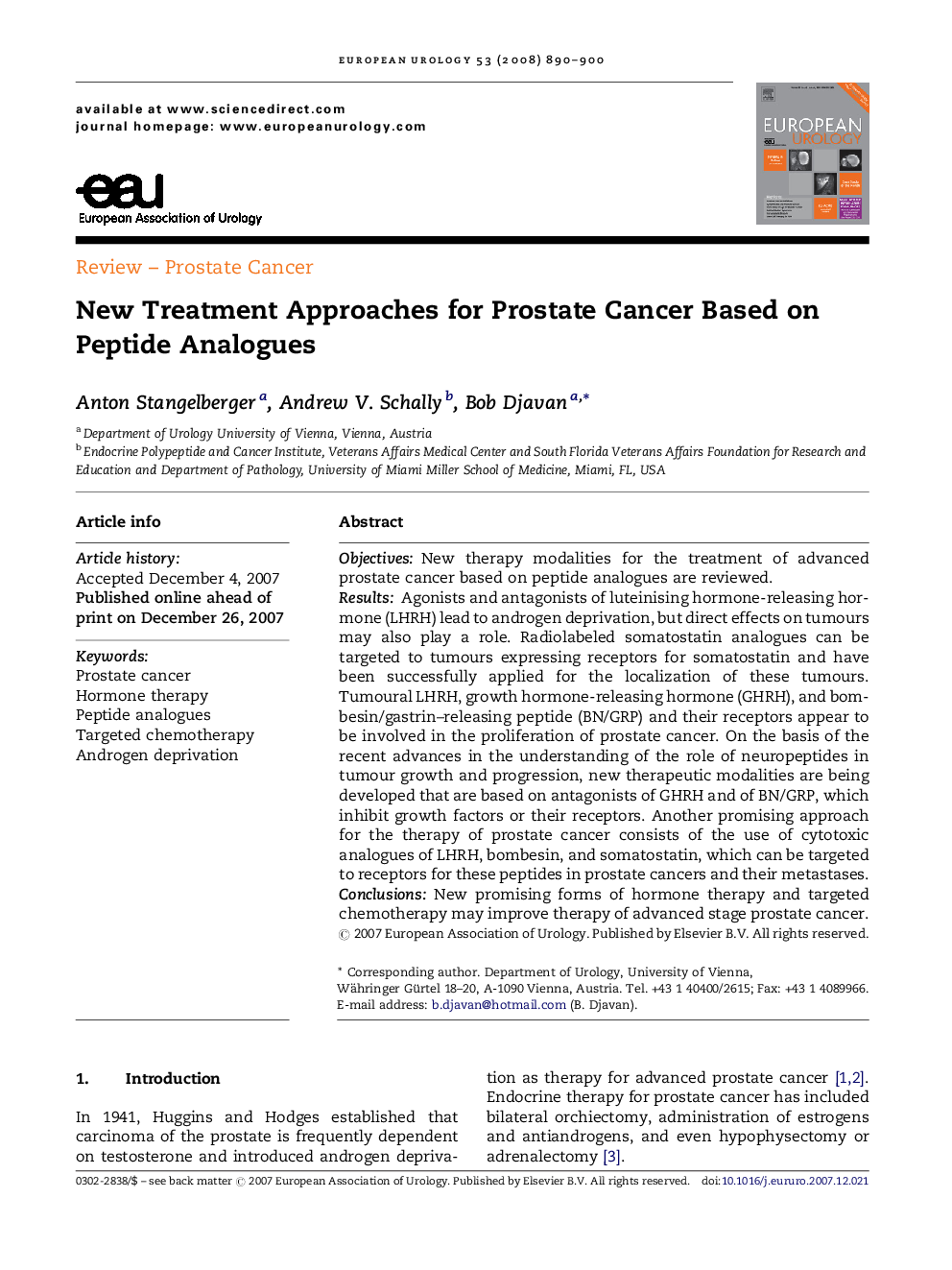| Article ID | Journal | Published Year | Pages | File Type |
|---|---|---|---|---|
| 3925381 | European Urology | 2008 | 11 Pages |
ObjectivesNew therapy modalities for the treatment of advanced prostate cancer based on peptide analogues are reviewed.ResultsAgonists and antagonists of luteinising hormone-releasing hormone (LHRH) lead to androgen deprivation, but direct effects on tumours may also play a role. Radiolabeled somatostatin analogues can be targeted to tumours expressing receptors for somatostatin and have been successfully applied for the localization of these tumours. Tumoural LHRH, growth hormone-releasing hormone (GHRH), and bombesin/gastrin–releasing peptide (BN/GRP) and their receptors appear to be involved in the proliferation of prostate cancer. On the basis of the recent advances in the understanding of the role of neuropeptides in tumour growth and progression, new therapeutic modalities are being developed that are based on antagonists of GHRH and of BN/GRP, which inhibit growth factors or their receptors. Another promising approach for the therapy of prostate cancer consists of the use of cytotoxic analogues of LHRH, bombesin, and somatostatin, which can be targeted to receptors for these peptides in prostate cancers and their metastases.ConclusionsNew promising forms of hormone therapy and targeted chemotherapy may improve therapy of advanced stage prostate cancer.
